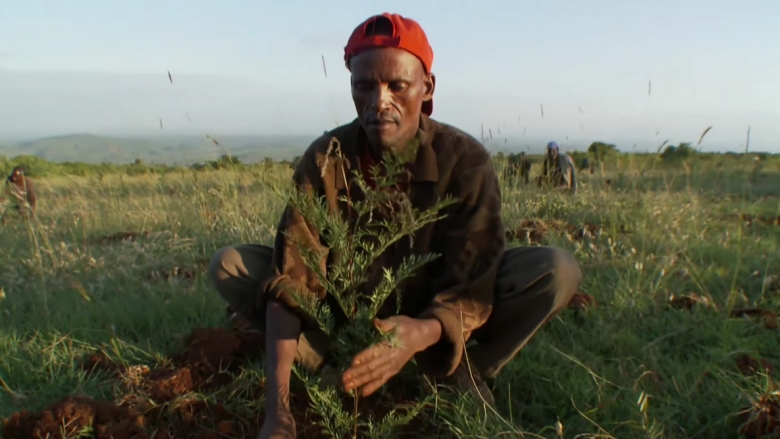Few could accuse Dutch company Royal DSM of not changing with the times. Founded in 1902 as a coal mining company, it shifted to petrochemicals by mid-century as the prospects for the fuel dimmed in the Netherlands. Foreseeing a decline in petrochemicals in the 1990s, the company moved on to manufacturing nutritional products, healthcare products, and materials such as plant-based plastics, and advanced materials that improve the performance of solar panels. DSM is today the world’s largest supplier of nutritional ingredients such as vitamins.
About a decade ago, the company challenged its scientists to come up with innovations that would help it prepare for the impacts of climate change. And so was born the “Clean Cow” project, a plan to bring down by 25 percent the amount of methane cows exhale by mixing in an additive into their daily feed.
Yet, a critical part of that opportunity would rest on governments placing a quantifiable cost on carbon emissions. If economies ascribed a dollar value to greenhouse gas emissions reductions, went the thinking, individuals and businesses – and in the case of the cows, farmers – would have a reason to buy DSM’s products in order to reduce their emissions-related expenses.
It’s a remarkable illustration of a business factoring in climate change to drive its corporate responsibility, and also create a business opportunity.
The World Bank Group recognizes that the financing needed for transition to a global low-carbon, climate-resilient economy is counted in the trillions, not billions of dollars. And while public and international concessional finance has a critical catalytic role to play, this transition will also be financed by the private sector.
Towards that end, the World Bank Group along with the International Monetary Fund, steers the Carbon Pricing Leadership Coalition, which brings together leaders from across government, the private sector and civil society to share experiences working with carbon pricing and to expand the evidence base for the most effective carbon pricing systems and policies.
Co-chairing the coalition’s first High Level Assembly, DSM CEO and Chairman Feike Sijbesma, said “by putting a price on carbon, you put a real economic incentive for companies to develop new low-carbon technologies, reduce their own emissions, and develop new technologies.”
Royal DSM has put a so-called internal price on carbon of EUR50 per ton of CO2e. Sijbesma said this will ‘future proof’ the business by changing the mindset when reviewing large investment decisions. The company and its affiliates currently has annual sales of EUR10 billion and employs 25,000 staff across the world. Sixty percent of its sales comes from products and innovations that have a measurably better social or environmental impact than mainstream alternatives.
To companies that fail to seize the opportunities of climate action, Sijbesma said, “I think they take the risk of missing the boat. If in five or ten years from now, the world really changes, and some of those companies say 'what is happening?', I would say the turning point was in December 2015, when we made this Paris agreement.”

